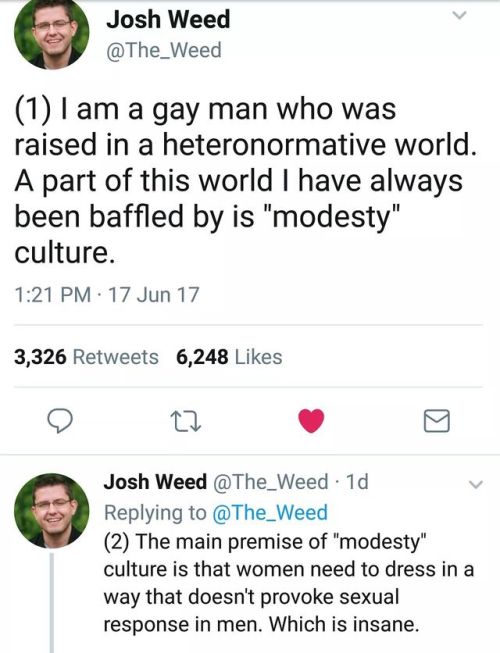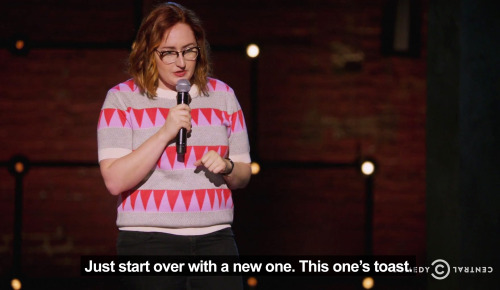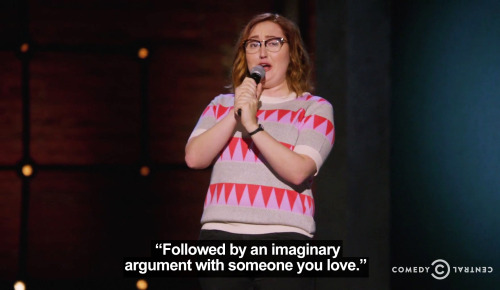Vnrgaard - Untitled








More Posts from Vnrgaard and Others

I find myself opposed to the view of knowledge as a passive copy of reality.
- Jean Piaget 1896-1980
How do we learn things? The answers to this age-old question have been examined and analysed by many scientists. There are plenty of prominent theories explaining cognitive development and helping us to understand the foundation of knowledge.
One of the most prominent answers to the question has come from a Swiss psychologist, Jean Piaget.
The legacy of Jean Piaget to the world of early childhood education is that he fundamentally altered the view of how a child learns. And a teacher, he believed, was more than a transmitter of knowledge she was also an essential observer and guide to helping children build their own knowledge.
As a university graduate, Swiss-born Piaget got a routine job in Paris standardising Binet-Simon IQ tests, where the emphasis was on children getting the right answers. Piaget observed that many children of the same ages gave the same kinds of incorrect answers. What could be learned from this?
Piaget interviewed many hundreds of children and concluded that children who are allowed to make mistakes often go on to discover their errors and correct them, or find new solutions. In this process, children build their own way of learning. From children’s errors, teachers can obtain insights into the child’s view of the world and can tell where guidance is needed. They can provide appropriate materials, ask encouraging questions, and allow the child to construct his own knowledge.
Piaget’s continued interactions with young children became part of his life-long research. After reading about a child who thought that the sun and moon followed him wherever he went, Piaget wanted to find out if all young children had a similar belief. He found that many did indeed believe this. Piaget went on to explore children’s countless “why” questions, such as, “Why is the sun round?” or “Why is grass green?” He concluded that children do not think like adults. Their thought processes have their own distinct order and special logic. Children are not “empty vessels to be filled with knowledge” (as traditional pedagogical theory had it). They are “active builders of knowledge-little scientists who construct their own theories of the world.”
Piaget’s Four Stages of Development
Sensorimotor Stage: Approximately 0 - 2 Infants gain their earliest understanding of the immediate world through their senses and through their own actions, beginning with simple reflexes, such as sucking and grasping.
Preoperational Stage: Approximately 2 - 6 Young children can use symbols for objects, such as numbers to express quantity and words such as mama, doggie, hat and ball to represent real people and objects.
Concrete Operations: Approximately 6 - 11 School-age children can perform concrete mental operations with symbols-using numbers to add or subtract and organizing objects by their qualities, such as size or color.
Formal Operations: Approximately 11 - adult Normally developing early adolescents are able to think and reason abstractly, to solve theoretical problems, and answer hypothetical questions.
Albert Einstein once called Piaget’s discoveries of cognitive development as, “so simply only a genius could have thought of it”. As the above shows, Piaget’s theory was born out of observations of children, especially as they were conducting play. When he was analysing the results of the intelligence test, he noticed that young children provide qualitatively different answers to older children.
This suggested to Piaget that younger children are not dumber, since this would be a quantitative position – an older child is smarter with more experience. Instead, the children simply answered differently because they thought of things differently.
At the heart of Piaget’s theory then is the idea that children are born with a basic mental structure, which provides the structure for future learning and knowledge. He saw development as a progressive reorganisation of these mental processes. This came about due to biological maturation, as well as environmental experience.
We are essentially constructing a world around us in which we try to align things that we already know and what we suddenly discover. Through the process, a child develops knowledge and intelligence, which helps him or her to reason and think independently.
For Piaget his work was never just for a closeted coterie of scholars and researcher but had real world application. Piaget was able to put his work in a wider context of importance. He said, “only education is capable of saving our societies from possible collapse, whether violent, or gradual”. Piaget’s theory centres on the idea that children, as little scientists, need to explore, interact with, and experiment in order to gain the information they need to understand their world.

Fun zodiac facts here!
Y’all know when Mulan is sitting in the rain and watches her parents silhouette disappear as the candle is blown out and then her eyes squint in determination and the music that starts to play and you see her go into the family temple and light a match and bow in respect and then sneak into her parents room and switch the scroll for her hair brooch and then the way her reflection is shown as she pulls the sword and cuts her hair?? It’s literally more iconic than any marvel movie
The other night I was invited out for a night with the 'girls.'
The other night I was invited out for a night with the ‘girls.’ I told my husband that I would be home by midnight, 'I promise!’ Well, the hours passed and the drinks went down way too easily.
Around 3 a.m., a bit pissed, I headed for home. Just as I got in the door, the cuckoo clock in the hallway started up and cuckooed 3 times. Quickly, realizing my husband would probably wake up, I cuckooed another 9 times.
I was really proud of myself for coming up with such a quick-witted solution, in order to escape a possible conflict with him. (Even when totally smashed… 3 cuckoos plus 9 cuckoos totals 12 cuckoos MIDNIGHT!)
The next morning my husband asked me what time I got in, I told him 'MIDNIGHT’… he didn’t seem pissed off in the least.
Whew, I got away with that one! Then he said 'We need a new cuckoo clock.’
When I asked him why, he said, 'Well, last night our clock cuckooed three times, then said 'oh shit.’ Cuckooed 4 more times, cleared its throat, cuckooed another three times, giggled, cuckooed twice more, and then tripped over the coffee table and farted.
This is toooo good!!! 😍😭😭😍
Only A Little Drunk
Genre: AU/Fluff
Pairing: Chanyeol x You
By Admin B

Getting a call from Chanyeol was not unusual. I mean, he was your boyfriend, and he was the type to prefer talking over texting, so… he called you pretty frequently.
It’s not like you were surprised in any way, shape, or form when your phone lit up and you saw ‘Yeolie🦊🐰💖’ at the top of the screen.
But you knew it was Guy’s Night.
He’d been at someone’s place playing poker or video games or a puzzle or whatever game he and his friends had decided to play tonight. (If it was Junmyeon’s house, it was unquestionably a puzzle.)
And… he’d also definitely been drinking.
So it was with great anticipation that you picked up your phone, pressing the ‘accept’ button and pressing it to your ear.
“Hey you,” you answered.
Keep reading
Ohh my 🤤






JESUS CHRIST BLESS HIM😍😍😍
😦










The Half Hour S05E09 – Emily Heller
Mood.


I was walking through the toy aisle at Target when I found this thing and had a VIOLENT AND IMMEDIATE FLASHBACK to when JP first came out and they had a bunch of REALLY COOL T Rex toys that I would have sold one of my scrawny small-child limbs for but my mother wouldn’t get me one because they were “too violent and also ate people” :(
-
 ninjacrowworld liked this · 1 month ago
ninjacrowworld liked this · 1 month ago -
 ganthritorchic reblogged this · 1 month ago
ganthritorchic reblogged this · 1 month ago -
 adidasxgucci28 liked this · 2 months ago
adidasxgucci28 liked this · 2 months ago -
 ace-simp liked this · 2 months ago
ace-simp liked this · 2 months ago -
 denynothing1 liked this · 2 months ago
denynothing1 liked this · 2 months ago -
 jadesage reblogged this · 2 months ago
jadesage reblogged this · 2 months ago -
 fire-bug1 liked this · 2 months ago
fire-bug1 liked this · 2 months ago -
 j0vialmoon liked this · 2 months ago
j0vialmoon liked this · 2 months ago -
 moonmacabre01 reblogged this · 2 months ago
moonmacabre01 reblogged this · 2 months ago -
 divinecatchaos liked this · 2 months ago
divinecatchaos liked this · 2 months ago -
 gwengrace liked this · 2 months ago
gwengrace liked this · 2 months ago -
 kateschechterxthorwasmyfirstotp reblogged this · 2 months ago
kateschechterxthorwasmyfirstotp reblogged this · 2 months ago -
 kateschechterxthorwasmyfirstotp liked this · 2 months ago
kateschechterxthorwasmyfirstotp liked this · 2 months ago -
 crunchynoodle reblogged this · 2 months ago
crunchynoodle reblogged this · 2 months ago -
 chaoticlawfulgray reblogged this · 2 months ago
chaoticlawfulgray reblogged this · 2 months ago -
 underwaterfraulein reblogged this · 2 months ago
underwaterfraulein reblogged this · 2 months ago -
 tidalrace reblogged this · 2 months ago
tidalrace reblogged this · 2 months ago -
 second-chances123 liked this · 2 months ago
second-chances123 liked this · 2 months ago -
 ganthritorchic reblogged this · 2 months ago
ganthritorchic reblogged this · 2 months ago -
 meret118 reblogged this · 2 months ago
meret118 reblogged this · 2 months ago -
 terracegardenphoenix reblogged this · 3 months ago
terracegardenphoenix reblogged this · 3 months ago -
 terracegardenphoenix liked this · 3 months ago
terracegardenphoenix liked this · 3 months ago -
 yenoodlethings reblogged this · 4 months ago
yenoodlethings reblogged this · 4 months ago -
 floweryflees liked this · 4 months ago
floweryflees liked this · 4 months ago -
 umbruss42 liked this · 5 months ago
umbruss42 liked this · 5 months ago -
 microcat1013 liked this · 7 months ago
microcat1013 liked this · 7 months ago -
 ananticdisposition reblogged this · 7 months ago
ananticdisposition reblogged this · 7 months ago -
 sunsetfunset liked this · 9 months ago
sunsetfunset liked this · 9 months ago -
 deviruo liked this · 9 months ago
deviruo liked this · 9 months ago -
 justalunaticfangirl liked this · 11 months ago
justalunaticfangirl liked this · 11 months ago -
 13callisto reblogged this · 11 months ago
13callisto reblogged this · 11 months ago -
 13callisto liked this · 11 months ago
13callisto liked this · 11 months ago -
 maguiteagle745 liked this · 11 months ago
maguiteagle745 liked this · 11 months ago -
 mpuraaaa liked this · 11 months ago
mpuraaaa liked this · 11 months ago -
 leaglaeca reblogged this · 11 months ago
leaglaeca reblogged this · 11 months ago -
 jibi08 liked this · 1 year ago
jibi08 liked this · 1 year ago -
 agaygothicmushroom liked this · 1 year ago
agaygothicmushroom liked this · 1 year ago -
 ambybutmomeraths liked this · 1 year ago
ambybutmomeraths liked this · 1 year ago -
 ghosts-are-people-too reblogged this · 1 year ago
ghosts-are-people-too reblogged this · 1 year ago -
 nebulaegalaxy reblogged this · 1 year ago
nebulaegalaxy reblogged this · 1 year ago -
 loonarmuunar reblogged this · 1 year ago
loonarmuunar reblogged this · 1 year ago -
 bigpoppadean liked this · 1 year ago
bigpoppadean liked this · 1 year ago -
 alieninworld liked this · 1 year ago
alieninworld liked this · 1 year ago -
 galloweye liked this · 1 year ago
galloweye liked this · 1 year ago -
 deadflycomputerlogs reblogged this · 1 year ago
deadflycomputerlogs reblogged this · 1 year ago -
 moldyfoxboi reblogged this · 1 year ago
moldyfoxboi reblogged this · 1 year ago